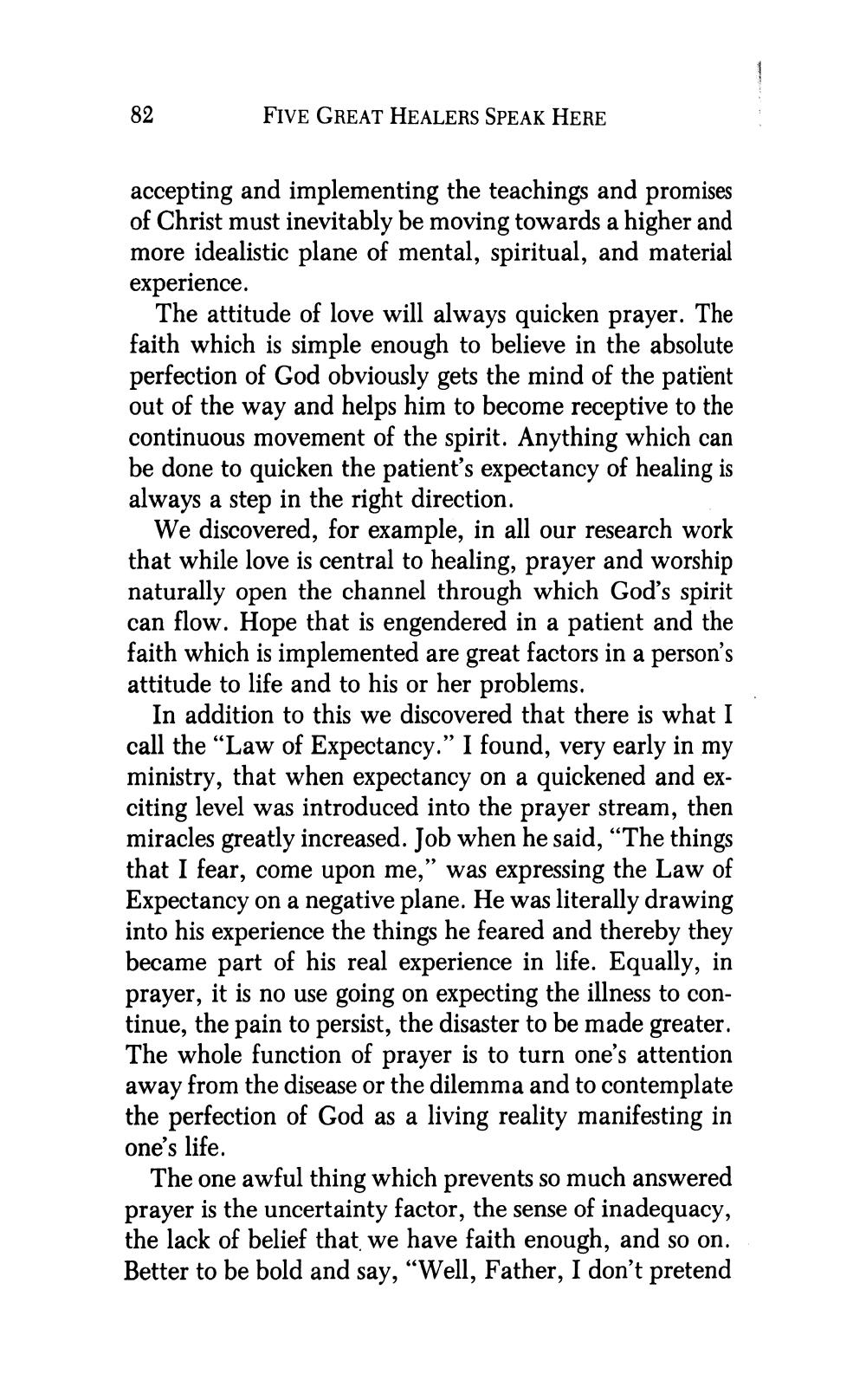________________
FIVE GREAT HEALERS SPEAK HERE
accepting and implementing the teachings and promises of Christ must inevitably be moving towards a higher and more idealistic plane of mental, spiritual, and material experience.
The attitude of love will always quicken prayer. The faith which is simple enough to believe in the absolute perfection of God obviously gets the mind of the patient out of the way and helps him to become receptive to the continuous movement of the spirit. Anything which can be done to quicken the patient's expectancy of healing is always a step in the right direction.
We discovered, for example, in all our research work that while love is central to healing, prayer and worship naturally open the channel through which God's spirit can flow. Hope that is engendered in a patient and the faith which is implemented are great factors in a person's attitude to life and to his or her problems.
In addition to this we discovered that there is what I call the “Law of Expectancy." I found, very early in my ministry, that when expectancy on a quickened and exciting level was introduced into the prayer stream, then miracles greatly increased. Job when he said, “The things that I fear, come upon me,” was expressing the Law of Expectancy on a negative plane. He was literally drawing into his experience the things he feared and thereby they became part of his real experience in life. Equally, in prayer, it is no use going on expecting the illness to continue, the pain to persist, the disaster to be made greater. The whole function of prayer is to turn one's attention away from the disease or the dilemma and to contemplate the perfection of God as a living reality manifesting in one's life.
The one awful thing which prevents so much answered prayer is the uncertainty factor, the sense of inadequacy, the lack of belief that we have faith enough, and so on. Better to be bold and say, "Well, Father, I don't pretend




